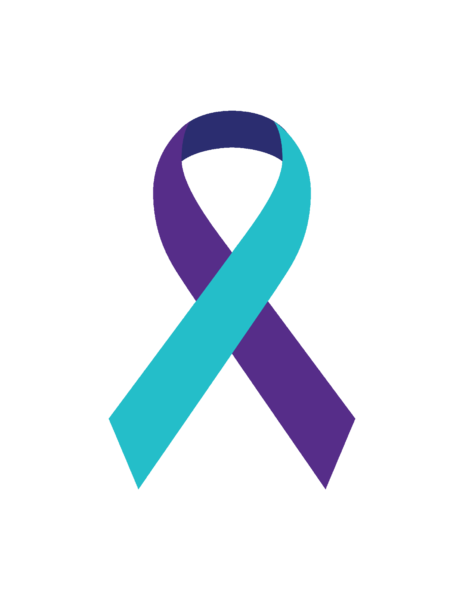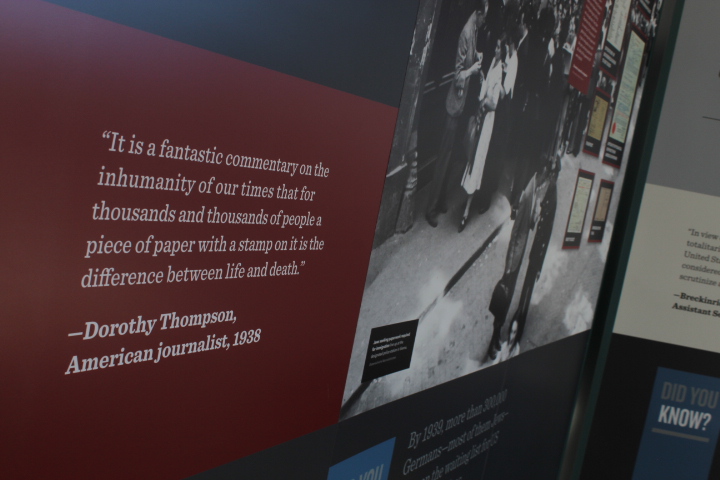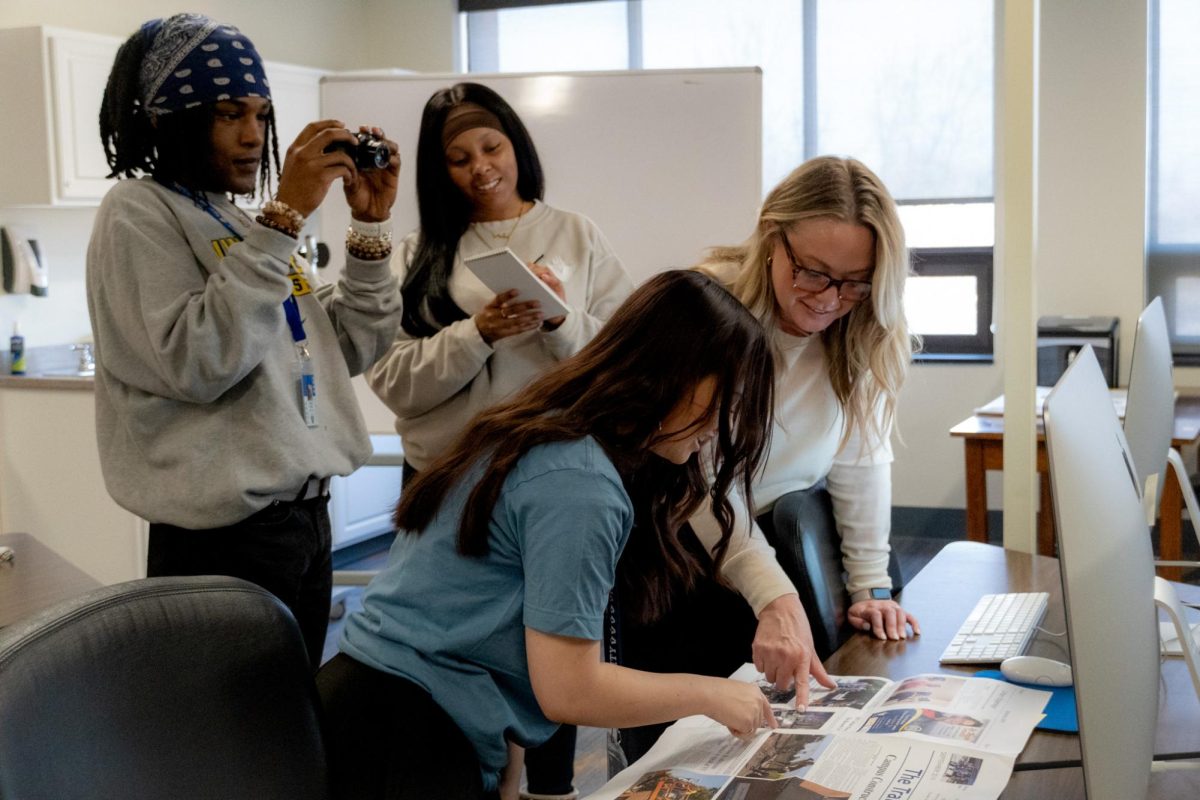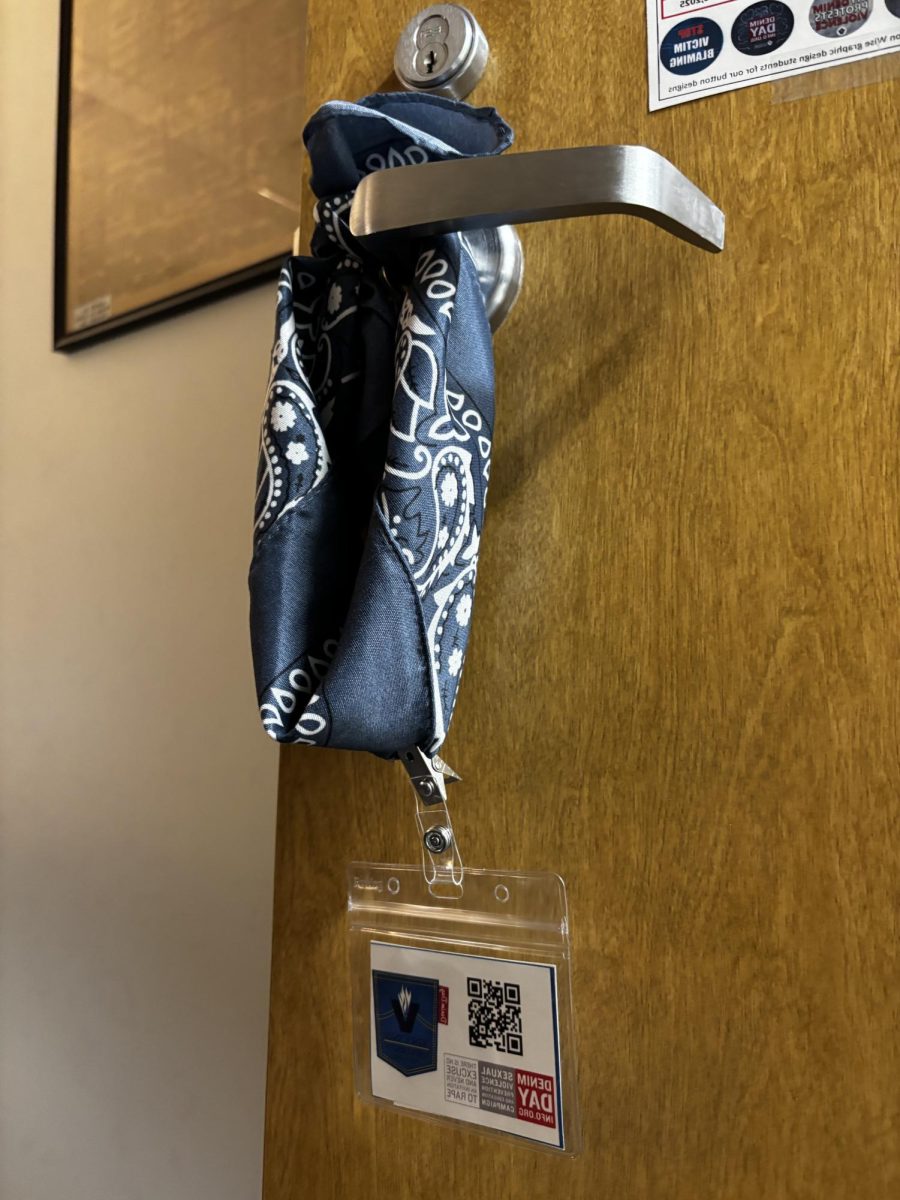Suicide Awareness: Help is Available
Students share their thoughts on the effects of suicide

October 14, 2021
Suicide is one of the leading causes of death in the U.S. Almost 48,000 people commit suicide every year in the U.S alone, according to the National Institute of Mental Health.
VU counselor Kathleen Evans said that suicide is not always predictable. Someone who is thinking about suicide may put on a facade and pretend that everything is okay when in reality it’s not.
“The person struggling usually has a sudden lifting of spirits. When there have been other indicators that display that they are still struggling significantly, it may point to a decision to end the pain of life through suicide. This might feel like a ‘relief’ to them that they have made the decision and so they APPEAR better, but in reality are not out of danger,” Evans said.
Losing someone to suicide can be very traumatic to everyone around them. Even to the people they didn’t know.
“Even one loss to suicide means that we are missing out on someone valuable to our families and community. Suicide affects a whole community and has a ripple effect on those around the person who died. We need to eliminate any stigma and make it acceptable for people to ask for help,” Evans said.
Suicide can cause feelings of emptiness, depression, anxiety, sadness, or even a mix of emotions. It needs to be known that it is okay to ask for help. Asking for help is not a sign of weakness, it’s a sign of strength and growth.
The VU Counseling Center provides free and confidential services for a wide variety of issues including depression, anxiety, grief issues, trauma, academic issues, substance abuse concern, and any other issue that might be affecting a student’s education at VU. They can seek counseling by contacting the counseling center at [email protected] or calling 812-888-4374.
They can also learn the signs and ask for help by calling the suicide prevention hotline at 1-800-273-8255 or by visiting their website: Lifeline (suicidepreventionlifeline.org).
Three VU students whose lives have been impacted by suicide agreed to share their stories with The Trailblazer. Here are their stories.
Stephanie Robarge’s Story:
2010 was a hard year for substance abuse counseling major Stephanie Robarge from Bicknell, Indiana as she lost two of her closest friends to suicide. One of her friends presented signs because he had attempted suicide multiple times before.
“The last time I saw him, he seemed like everything was fine, but he was talking to other people that night about getting to meet Jesus,” she said
A couple of months after he had passed away, Robarge’s second friend had committed suicide with the same rope her first friend had.
“He had gone to get help from the Good Samaritan Hospital a few months after and told them a few times that he was suicidal. They told him there weren’t enough rooms in the hospital, and I guess he felt like he couldn’t get help from anywhere else.
Most people won’t ask for help for many reasons. Some people don’t talk about it because they don’t want anyone to stop them. When I had tried committing suicide, I did leave signs. I called my mom and stuff like that, but more so I think it’s because they don’t think anyone’s going to understand what they’re going through and they don’t believe there’s a way out, and that it’s not going to get better.
Some people play it off like their fine and whatnot but it’s more serious, and you should be more concerned about checking in on your friends because a lot of people don’t just bring up issues that they are going through. Some people don’t know how to express themselves. People will give up so easily, or you try to help someone else out but they won’t put the effort in to get better because this affects our mental health as well. You can’t help someone that won’t help themselves.
After someone you love and care for commits suicide or passes away, it puts everyone around them in extreme depression. They’re left with feelings of guilt and wondering the last time they talked to them, thinking ‘ what could I have done differently. For myself, their suicides put me into addiction up until two years ago because I blamed myself, I ended up with eating disorders, not being able to eat or think, I was on medication, and I just came out of it.
Suicide awareness is extremely important; people need to take care of their mental health and keep an eye out for people they love. If you see signs and symptoms of someone who seems depressed or discouraged with themselves, it could seem like they’re discouraged for the day, but it could be a lot deeper than that. So be more involved with people around you, even if you don’t know them, and speak up and ask them how they are doing or how their day is going, because that one little action of kindness can change their entire route of wanting to be suicidal.”
Destiny Dunham’s story:
Throughout her life, social work major Destiny Dunham from Palestine, Illinois has been through a lot. She has been abused and has also experienced suicidal thoughts.
“For a long time, I thought the abuse was my fault, and I thought I was worthless and pretty much hated myself all the time. Looking back to when I was struggling, I kind of pulled away from everybody and isolated myself, and just didn’t want to talk to anyone. Since then, I’ve been working on loving myself more and forgiving those people who had hurt me.
What really helped me was more coping skills and self-reflection and gratitude and thinking about the good things you have in your life. The best thing you can do for them is actually sitting down and listening to them and being there for them.
I think there is a whole stigma around suicide where people think ‘oh you’re crazy’. For me personally, I’m going to school to be a therapist because of what I went through. I almost dropped out of school because I felt like people were going to judge me and think ‘ how can she help people if she’s so broken’. I think that everyone goes through things, but you should always help them instead of judging them.
Even when it seems like there is no hope, things can get better. But if you give up and end your life, you lose all chances of getting better. So if anyone is struggling don’t give up.”
Jennifer Owens’s story:
Behavioral Science Substance Abuse major Jennifer Owen from Harrisburg, Illinois has lost family and friends in past years to suicide. She has lost her father, her best friend, and two other friends and has been greatly impacted by all of them.
“I have been greatly affected personally by suicide. My father was my rock, my best friend. After his suicide, I turned to drugs to try to take the pain away and the deep hole in my heart of missing my father, knowing I would never see him again. Then I was faced with the other two suicides, which made my addiction even worse to the point I could not function normally in society.”
She says her addiction lasted four years when she came into recovery. Although she has had many losses and struggles with addiction, her past experiences have helped her evolve into the person she is today.
“I completed seven months inpatient and four months outpatient. I am currently about to celebrate two years of sobriety. I have started an outreach program called ‘Straight Outta Darkness’ to try and reach out and help those lost in the darkness of addiction and mental health issues. I still blame the jail for a lot and it’s something that I’ve had to give to God to get through.
I think people don’t talk about mental illness as much as they should because I feel like it’s not taken that seriously. I think it’s because addiction and mental illness are not recognized together. One could cause the other, addiction could bring on mental illness or mental illness could cause addiction. They should both be considered what they are, diseases.
If I thought someone was thinking about committing suicide I would get them the help they need. Whether that be substance abuse treatment or mental health treatment. If someone threatens suicide I would take it seriously and make sure they were watched by medical professionals until they could get the treatment needed. Leaving someone alone when they are having these thoughts can mean life or death.
Suicide is the most difficult thing I have ever had to deal with in my life. It’s one thing I would have never imagined my family and I would have to deal with. I never knew pain to be so deep, that I couldn’t stand it or move past it. The last thing I ever thought was I would self-medicate myself to get through those days that ended up turning into years of addiction. I believe jail should have more staff and do better intakes on an inmate. If an inmate is coming in under the influence of drugs they need to be monitored. No one’s mental health is good coming off of drugs. Someone that has never been suicidal could then become suicidal. Some people even require a medical detox, so why should an inmate be any different. They are still human beings that just made poor choices, due to whatever unforeseen reason.
People should take suicide seriously because it’s real. Depression is real, addiction is real. People need people sometimes you know. When a person feels alone or hopeless that’s when things like this can happen. Suicide should be taken very seriously and society should not outcast those with mental illness.”





Kim R Ivers • Mar 17, 2022 at 8:48 pm
I would like to speak with you jennifer Owen’s. Please find me on facebook. Kim R Ivers
Thank you so much